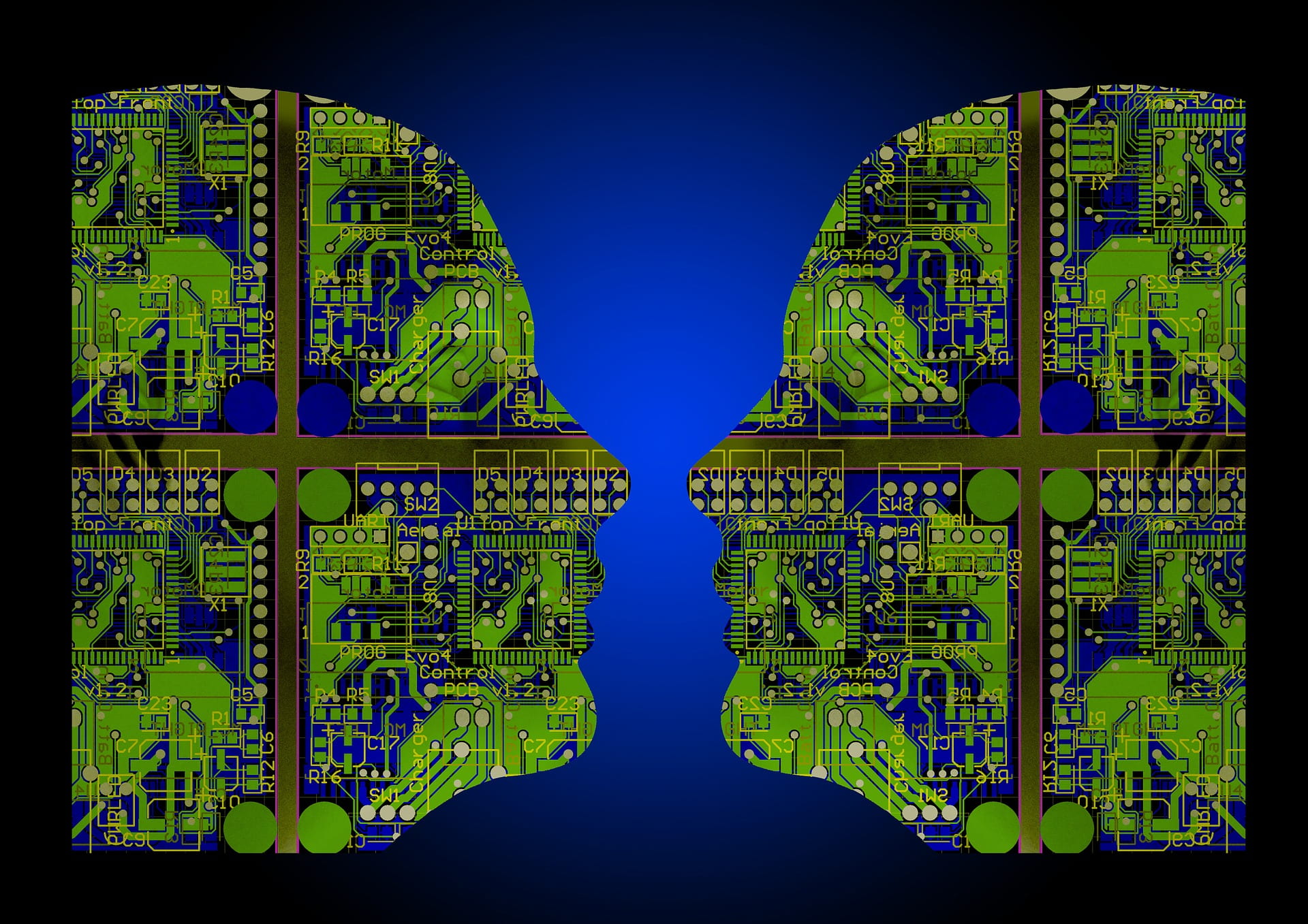Movies such as Blade Runner, IRobot, or the Matrix portray a futuristic ambiance in regard to artificial intelligence overpowering humanity. At first glance, these movies can seem unrealistic and a bit absurd. However, in recent years, it appears to be less ridiculous as it hints at a bit of truth. There is no doubt that technology has advanced at a rapid speed in the last ten years. As each year passes, it seems there is a new device or software that can somehow make your life easier. Technology is used in every aspect of our life – from our homes to our work to the stores we visit. Often times, it can seem inescapable. If you turn your attention to your surroundings, you are likely to see people on their phones or computers – whether they are searching the Internet, looking through Instagram, or sending a text.
It is alarming to consider how technology affects every aspect of our lives. It even influences human rights such as the right to privacy or freedom of expression. There are numerous concerns that people have about the role and impact of artificial intelligence. People are concerned about the rise of “machine autonomy” and how gradually it can diminish “the status of humans”. Furthermore, there are concerns on the use of artificial intelligence in terms of “unjust and unequal political, military, economic and social contexts.”
For example, the U.S. seems to be moving towards an artificial arms race by using, killer robots, or lethal autonomous weapons systems (LAWS). People concerned about giving these killer robots the power to decide whether someone lives or dies with little to no human control. Google created a military program called Project Maven, where a machine is used to analyze the drone surveillance footage which can be used for extrajudicial killings, meaning people could be killed without any legal processing. There have been aimed at Google urging them to reconsider what the data is used for. Google has since then declined to renew their contract.
Google is not the only company that has dealt with controversy in terms of technology and how it affects people’s human rights. A data firm by the name of Cambridge Analytica was caught using data from Facebook in order to build voter profiles. Employees acquired private Facebook data of millions of users, then they sold the information to political campaigns.

Another rising controversy with technology is how artificial intelligence (AI) systems have fostered “discriminatory practices”. The University of Cambridge published a study on the Malicious Use of Artificial Intelligence which details how “terrorists, criminals, and rogue states could potentially use AI’s with an intent to harm people”. It foreshadows an increase in cybercrime, misuse of drones and manipulation of elections. While the report is seen as a warning, it provides a series of recommendations: policy-makers and technical researchers working together, being mindful and proactive about the possibility of AI misuse, and expanding the stakeholders in regards to preventing and reducing the risk of malicious use of AI. The goal of their report was to grab the attention of governments, organizations, and individuals. However, we need more than a call-to-action such as effective and enforceable legislative control. We cannot deny the entanglement between our everyday lives and technology and must confront the difficulty in deciding where to draw the line between beneficial and malicious use of technology.
A Rwanda’s Minister for Justice and Attorney General, Johnston Busingye about the country-wide DNA database. In order to make this proposal work, scientists will collect DNA samples from all 12 million citizens in Rwanda, giving them access to personal medical and genetic information. Their reasoning for implementing this program is to decrease the number of crimes. There has been backlash from human rights campaigners because they believe the data could be misused by the government and violate international human rights laws. However, Busingye made a statement assuring the people that their end goal, using the data to determine who is responsible for the crimes, is genuine. The proposal has still not officially been approved but are waiting for the budget and the proper legislation to be passed in order to make it legal.
Rwanda is not alone in attempting to create a mandated DNA program whereas countries, such as China and Kuwait, have already set this program in motion.. People are concerned about how Muslim Uighur minority. Researchers believe the Uighur minority is “systematical detained in re-education camps”. In response, China denies all these claims. Similarly, four years ago, Kuwait passed a law that required their citizens and visitors to give their DNA samples; however, the law was revoked because it violated articles 30 and 31 of Kuwait’s Constitution in regards to personal liberty and privacy.

As the debate for technology and AI continues, the Human Rights Watch aims to ban developing and using these killer robots. However this technology is nothing new – the focus is on how, when, and why individuals should or should not use them. Furthermore, the question of human intervention arises. While using DNA collection in certain circumstances, such as finding criminals, can be beneficial, there poses a question of how people use the date and if it infringes on our human rights. The numerous databases worldwide have no common structure among themselves. Thus, there are concerns on how countries obtain the data and whom they share the information with. The DNA database can trace anyone through “biological tagging”, even those who innocent or have no relation in regards to the crime in question. Other possible challenges could include how the information is kept and used. For example, when determining whether or not an individual is a good fit for a job the hiring company could access the data and that affects the individual’s rights. Furthermore, the data could be used by criminal organizations. Both killer robots and DNA collection have benefits such as solving more crimes and military advances; however, it ultimately challenges the principle of privacy.

